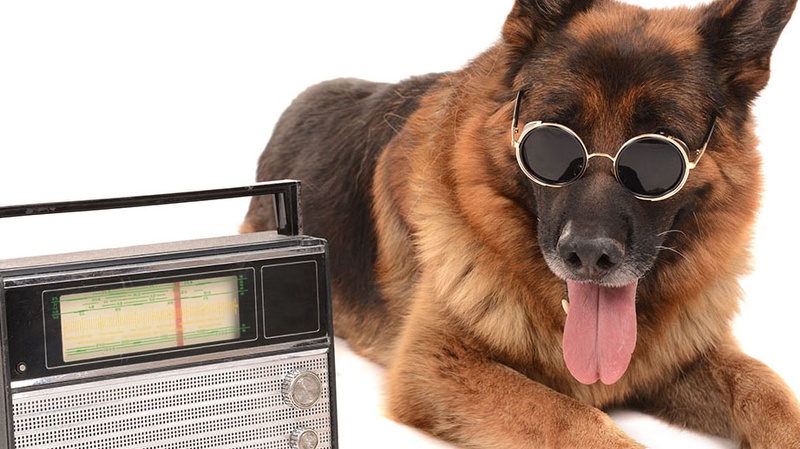How to get started in amateur radio

It's cool to learn about radio waves!
I've always wanted to get my ham radio license. The hobby seemed to have an alluring culture full of electronic technical whiz kids and grizzled old tinkerers. These are guys who know Morse code and wear huge closed ear headphones on their tractor. They listen to the radio signals generated by cosmic rays entering the atmosphere. Despite this I never really knew how to get started and it seemed like a big commitment. It's not like I know anyone else involved, which makes it seem awfully exclusive.
Eventually I decided I was just going to go take the dang exam even if I had no idea what I was doing. Once I made the choice to look up a study guide and find out where and when a test session would occur, it was only a few more days before I jumped in the car and headed down to The Red Rock Search and Rescue Training Center in Las Vegas to get my license. The Las Vegas Radio Amateur Club reserves this room once a month to administer the exam on behalf of the FCC. All you have to do is just show up, pay twenty five dollars, and take the thirty five question multiple choice exam.
When I arrived it was obvious I was at the right place because the entire street was lined with pick up trucks and motorcycles covered with a forest of antennas and Vietnam Veteran bumper stickers. Inside the classroom there were about 12 volunteer examiners seated at a table in the front of the room. Their job was to collect the test fee, check everyone's ID, grade the completed tests, and fill out the FCC paperwork that makes up your actual application. After a few minutes they called us up, gave us our test booklets and the test was begun. Once finished and handed in to the earnest tribunal of volunteer examiners they will ask you to step outside while three separate people score the exam for redundancy purposes I guess.
After a few minutes, someone comes out and pulls you aside to solemnly inform you your score, if you pass, congratulations you are a licensed amateur radio operator. A few weeks later I was issued a call sign, and was ready to go. It's really that easy.
Why get involved with amateur radio?
Virtually everyone who lives in a developed country operates a sophisticated radio device every day. Cell phones are nothing more than fun sized computers, attached to a hand held radio, and connected to a network of radio repeaters. Beyond that, satellites are constantly broadcasting music, positioning signals, and all kinds of things all around us. Most of us know how to use these devices, but don't have any idea how they work. Why shouldn't we want to know how they work?
It can be very rewarding to explore and even experiment with the technologies which make wireless communication possible. As a programmer I've found the insight in to radio very beneficial in a practical sense as well since it applies directly to network protocols and behavior. Radio technology is one of the foundational technologies of the modern world and honestly it's just really cool. Isn't it amazing that there are all these beacons of invisible light transmitting the entirety of human culture around the world and into space literally 24/7? Now of course you can learn about these things without being a licensed radio operator, but you really can't practically experiment with any of the ideas. With a license you can actually build your own radio, you can see how the length of an antenna actually performs differently depending on the wavelength of the signal and the resonance, you gain real practical knowledge in how radio works on a physical level. You can try different methods of encoding signals like SSB(single sideband), or CW(Morse Code), Fast Scan TV, or packet based digital modes. You start to get a feel for the pros and cons of different radio technologies and why we do things the way we do in commercial radio applications.
If practical reasons are not good enough, then here are a few less practical reasons.
- You can communicate with the International Space Station.
- You can learn cool lingo like QSO and QRT. More Lingo
- Possibly the only hobby shared by nerds, farmers, and bikers.
- You might be the youngest person at the club meetings if you join a club.
- Talk to someone in Taiwan by bouncing radio signals off the damned ionosphere or idk maybe the moon if you feel like it(yeah you can do that).
- Casually bring up space weather in conversation with other operators. "Man the 10 Meter band is wide open tonight! Ground wave propagation is insane during this solar maximum!"
- If society comes to an end you will have the skills to be a valuable contributor on any wasteland survival gang, provided they do not cultivate a violent and primitive anti technology religion with which to demonize the modern avarice that lead to the downfall of mankind.
- According to movies, learning Morse code will almost definitely save your life at some point.

Oh radio, you are so interesting, tell me your secrets bb.
Passing the exam and getting licensed
There are three levels of amateur radio license: technician, general, and extra. Each class you gain must be achieved in order, you can't just skip, and each one you pass opens up additional frequency bands for you to transmit on. This is important because the FCC can and will fine you if you are transmitting illegally. It's super easy to triangulate a radio signal. The idea of taking an exam to get licensed for anything can sound a little daunting, but honestly there is nothing to worry about and the entry level license class can be prepared for in as little as a few days with some light reading. This is because all of the questions on the exam are multiple choice, and come from a freely available pool of questions. That means if you just read over the question pool a few times you'll basically just recognize the answers word for word on the test. It almost feels like cheating, but just remember the real learning is going to happen once you already have your license and start trying things out.
Technician
- 35 question exam
- Can broadcast on UHF and VHF Bands
General
- Must pass Technician exam first.
- 35 question exam
- All VHF/UHF Amateur bands and most HF privileges (10 through 160 meters).
Extra
- Must pass Technician and General exam first
- 50 question exam
- All Amateur band privileges.
Before you go and take your exam you should decide which class you want to go for. The easiest and first class is technician, then general, and then extra. To progress to the next class you first need to pass all of the exams before it. Luckily you can take all three exams at once if you like, and you will only have to pay the examination fee once. You can also retake an exam if you fail it. The important thing is that you know how far you want to go and study for the questions that will appear in all the exams required to get to your desired level.
Resources
- Technician Class study guide: Download
- Practice exams: ARRL Practice Tests
- Find a testing time and location Testing Schedule
- Show up and pass the exam!
Getting your license and call sign
After completing the exam you will get a signed piece of paper indicating that you have passed the test and the paperwork for your license will be filed with the FCC by your examiners. Unfortunately if this is your first license you will have to wait until the FCC verifies and issues your license. They no longer send you a paper document, but rather when approved your new call sign and information will be added to their license database which you can check on line. This can take anywhere from one to a few weeks depending on how backed up they are. You just have to keep checking. FCC License Search Once you have been issued a call sign and license you are approved to get on the air for all the bands approved for your class!